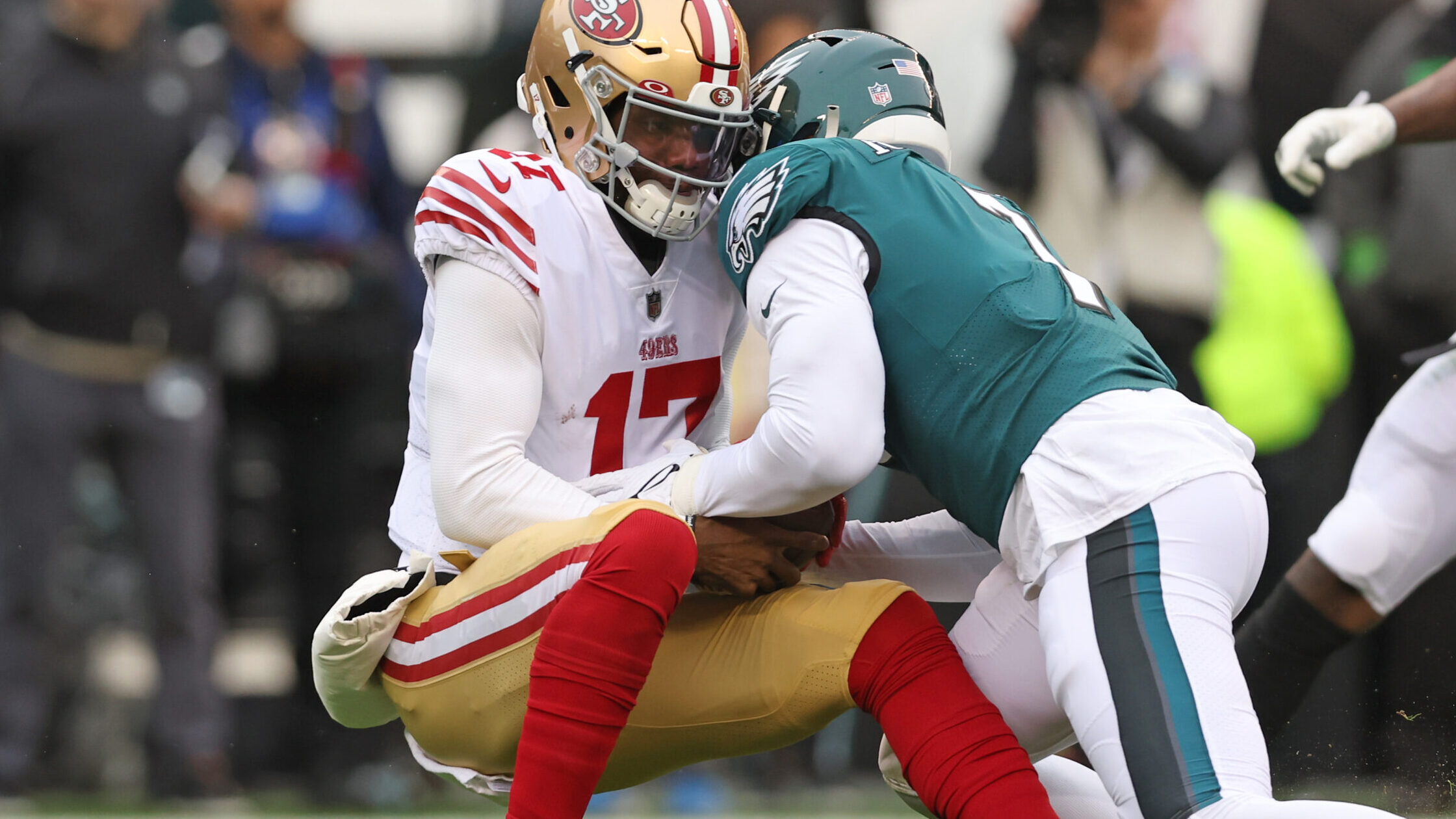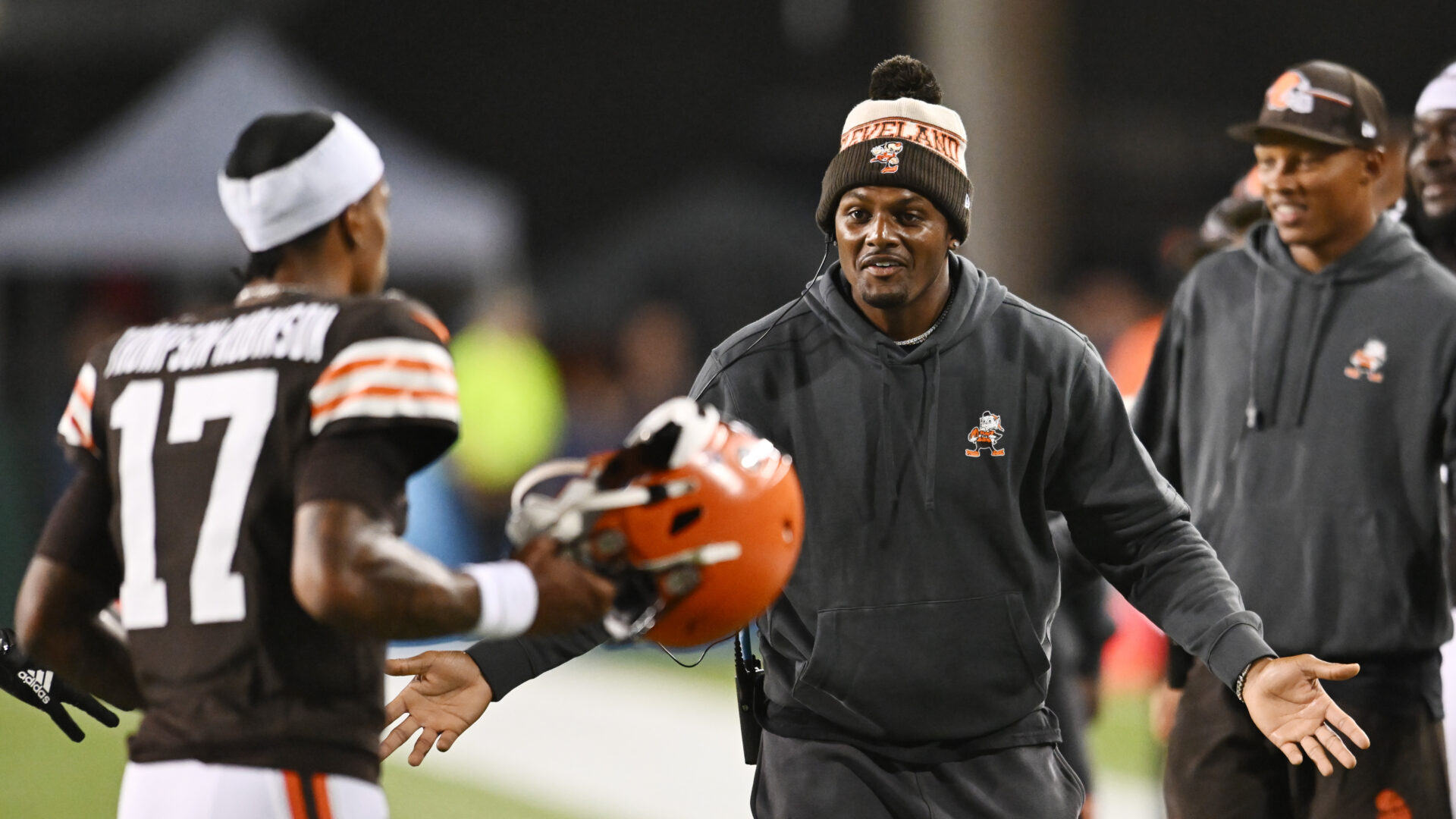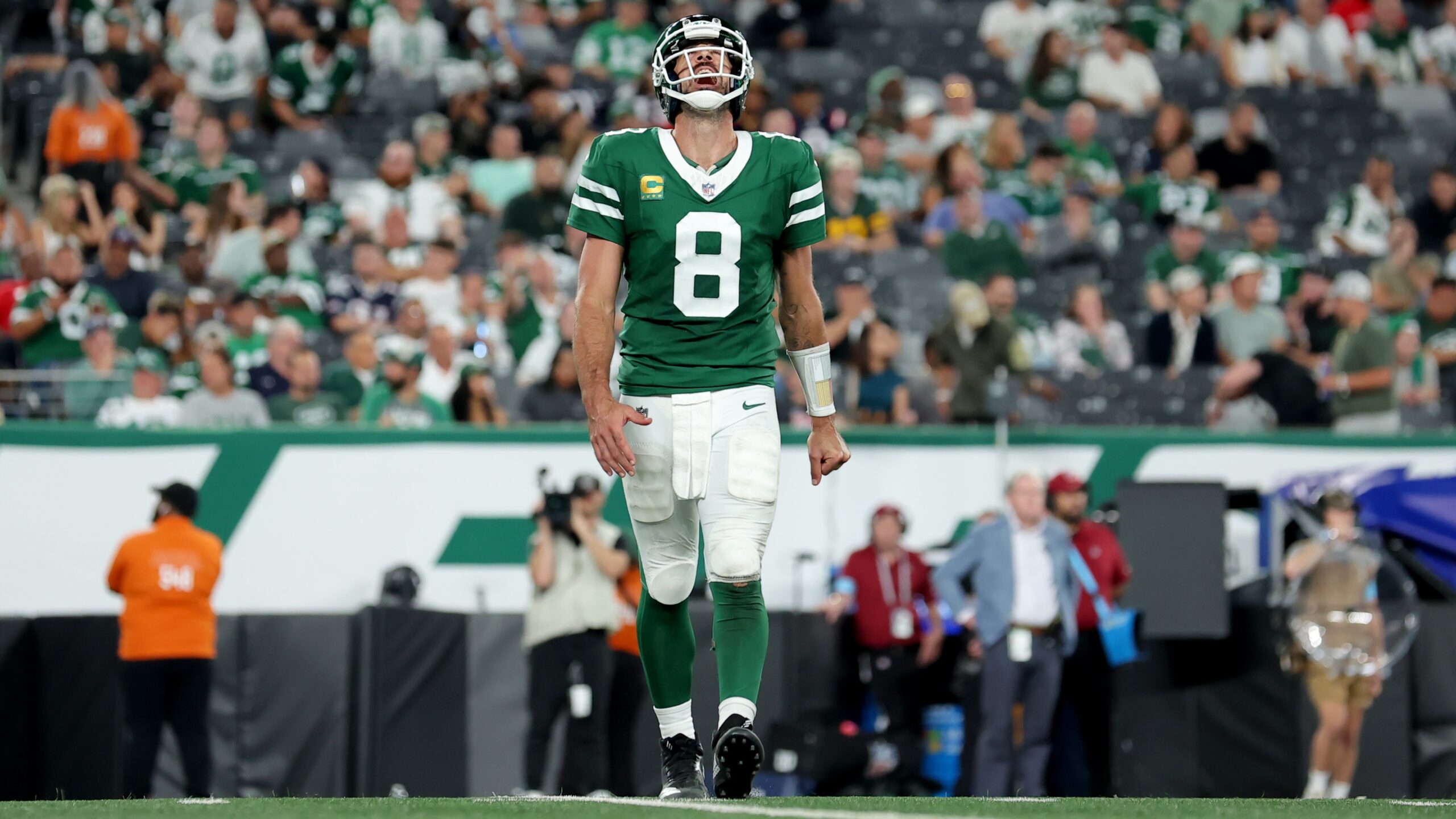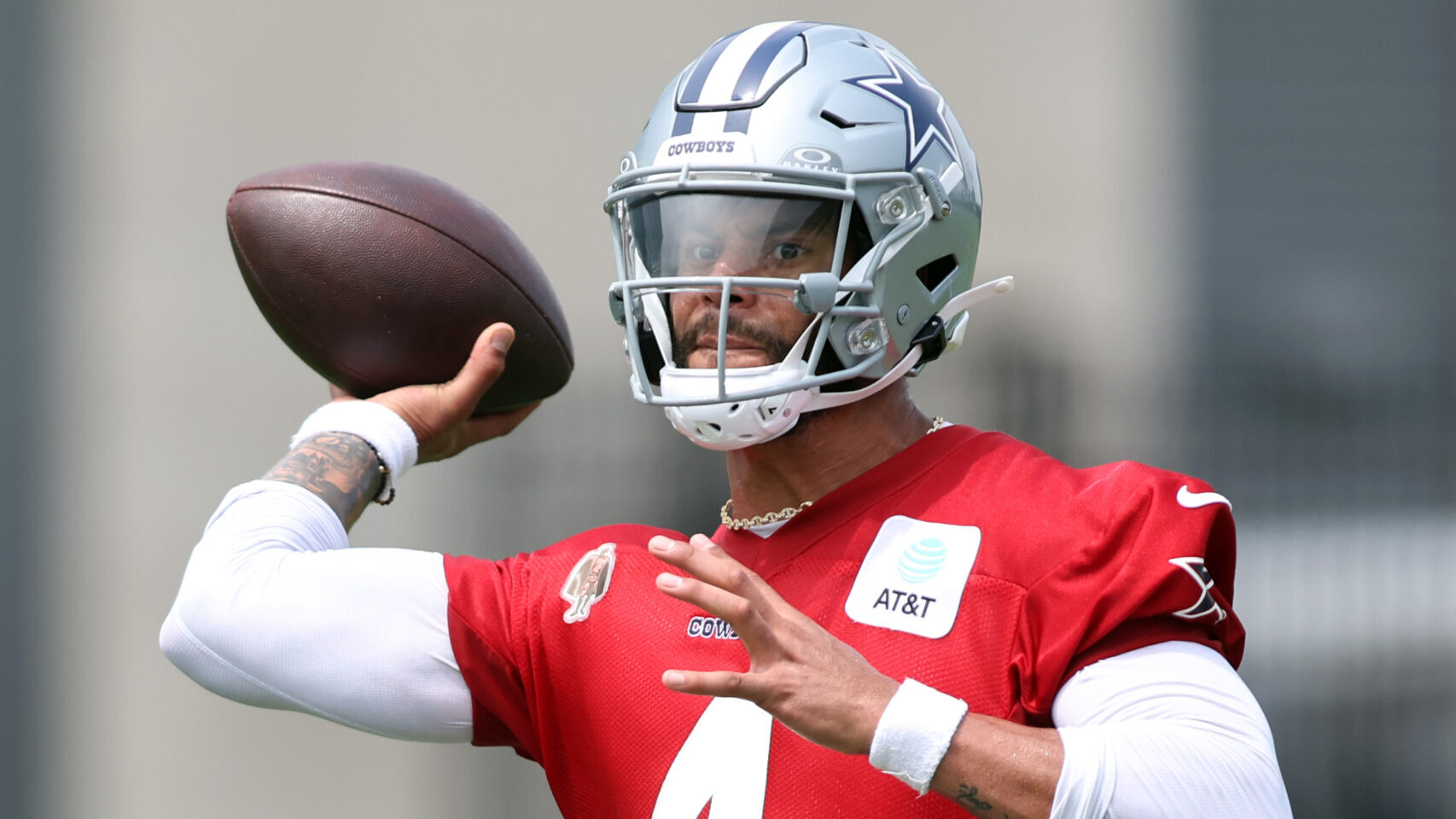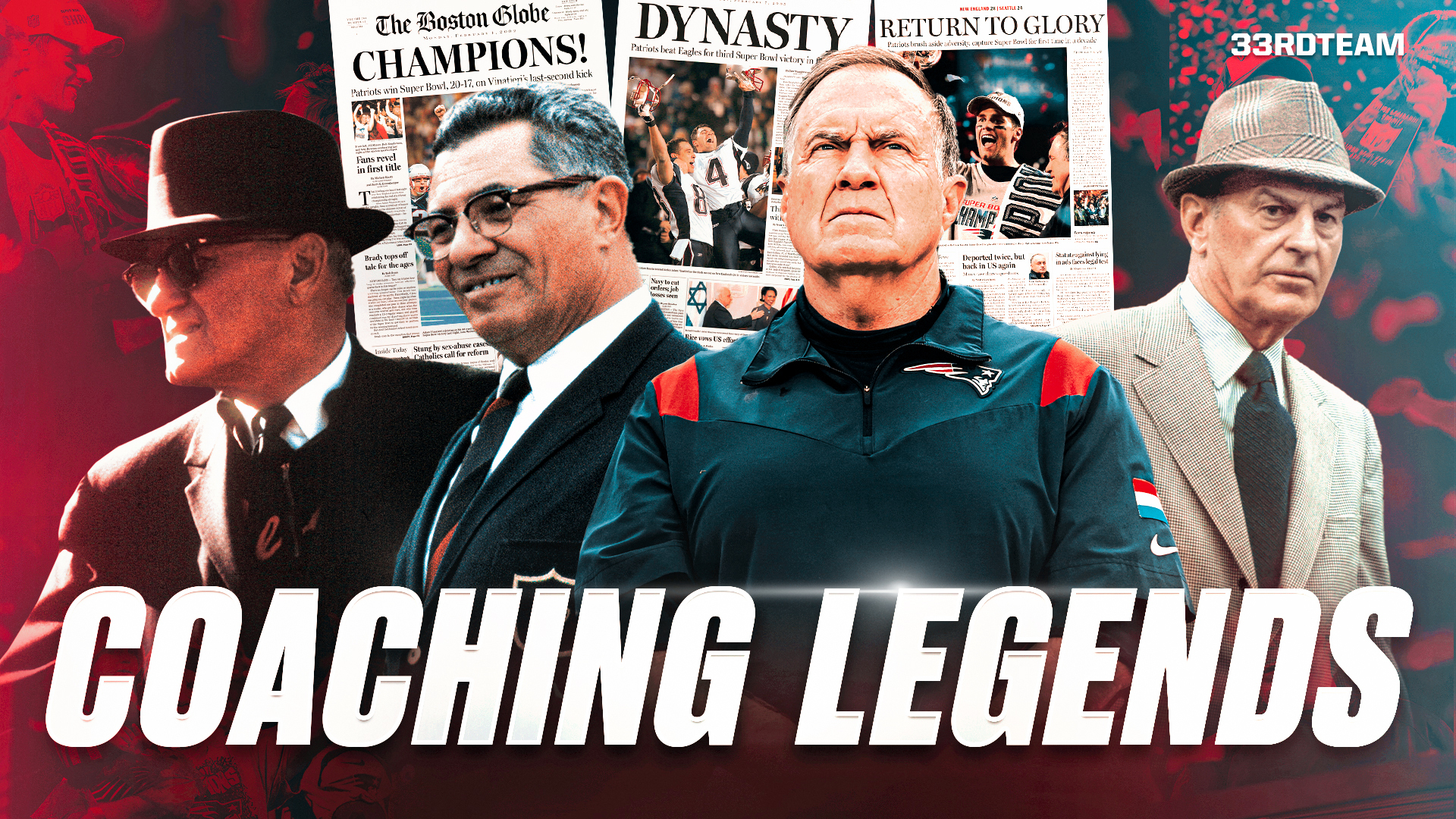Analysis
8/15/23
9 min read
Should NFL Teams Use New Rule to Keep 3 QBs on 53-Man Rosters?
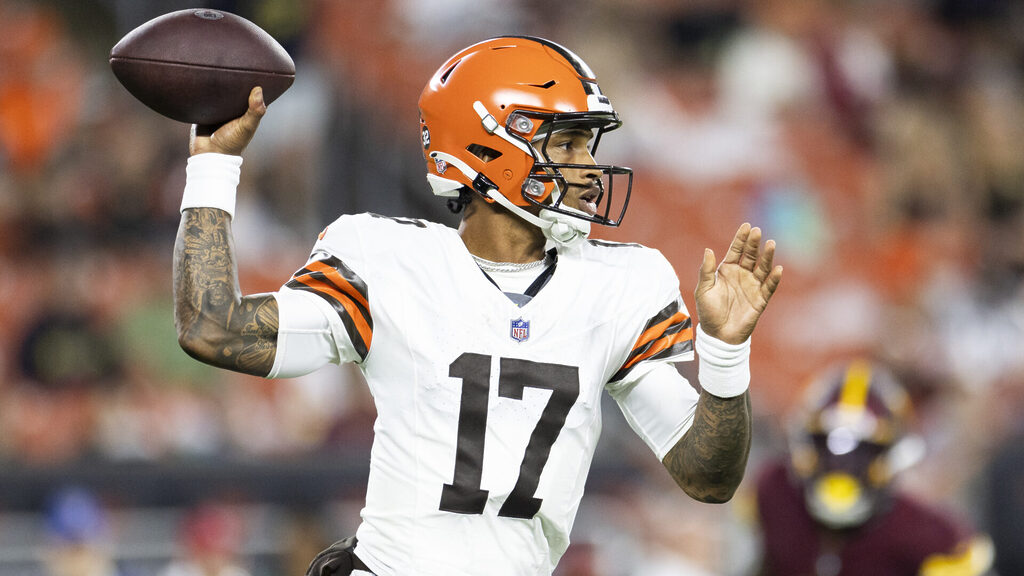
The downside to keeping a third quarterback on an NFL roster is obvious: You make room for a player with little chance of being on the field at the expense of one at a different position more likely to play.
That conventional thinking could change this season. Thanks to the nightmare scenario that happened to the San Francisco 49ers in last January’s NFC Championship Game, carrying three quarterbacks could have a significant upside.
Why a Change Was Made
The 49ers entered the game minus injured Jimmy Garoppolo and Trey Lance. Before it was over, third-stringer and starter Brock Purdy suffered an elbow injury, and his replacement, fourth-stringer Josh Johnson, sustained a concussion.
The 49ers were forced to put Purdy back in the game, even though he could do little more than throw a pair of short passes. The severe limitations to their offense undoubtedly factored into the Philadelphia Eagles’ easy win.
To help remedy an embarrassing situation, the NFL decided, in the offseason, to bring back a rule allowing teams to dress an emergency quarterback if he’s a member of the 53-man roster and not called up from the practice squad.
The rule was previously in place from 1991 to 2010 before it was eliminated.
In 2022, clubs were split about 50-50 between carrying three quarterbacks and just two. With the return of the emergency quarterback availability, there’s reason to think more teams will be inclined to go with three quarterbacks.
Any franchise owner, general manager or coach watching that NFC title matchup couldn’t help but squirm at the thought of being in the same situation as the 49ers or at the real chance of having to use a player from another spot at the game’s most crucial position.
“I think, in some ways, this could be the ‘San Francisco 49er Rule,’” said former NFL general manager Mike Tannenbaum, an analyst for The 33rd Team. “Philadelphia was arguably the better team, but we’ll never know. We wanted to see two good teams slug it out until the end.
“To see a non-quarterback play that position (in an emergency) isn’t what our sport should be about. So I’d be hard-pressed to think that most teams won’t keep three this year. I think they will because it’s almost like you get the extra roster spot on game day.”
Should Teams Keep 3 QBs?
The choice doesn’t come without challenges.
Deciding to keep a third quarterback means going with one fewer player elsewhere. Injury or performance can necessitate an extra offensive or defensive lineman, receiver, tight end, linebacker or defensive back.
“It may impact how you balance out that 53rd player going into the (setting of the) practice squad,” Tannenbaum said. “But I think with the increased emphasis on player health and safety and concussions, I’d be surprised if most teams didn’t avail themselves to having the third quarterback.”
Former NFL executive Joe Banner said if he were assembling a roster, he would take advantage of the rule change and keep a third quarterback simply because it’s an inexpensive insurance policy.
“If there’s basically no cost, then there’s no reason not to have the third guy just in case,” said Banner, an analyst for The 33rd Team. “That said, history says that the chances of a third-string quarterback, even over a very short stretch, of having success are incredibly small. Maybe if it’s one game, the guy could pull it off. And why not have every possible thing that can help you?”
Tannenbaum always favored the idea of having three quarterbacks on the roster. When he was the New York Jets’ general manager, the third quarterback was Brad Smith, a fourth-round draft pick from Missouri in 2006.
However, Smith’s skills weren’t limited to playing quarterback. He also saw action as a receiver and kick returner.
“In talking to some people around the league, the question is going to be, ‘How many reps is that third quarterback going to get?’” Tannenbaum said. “So, I think you may go one of two ways. You’re either going to go super young, where it’s somebody that’s very raw but may have compelling upside. I think there’s gonna be some teams that are going to say, ‘We know this quarterback’s not going to get any practice reps at all yet is going to have to go in on a moment’s notice. So we’re gonna go with a veteran who can get us through the game with no reps.’”
Though what happened to the 49ers could be considered unusual, it’s fair to say concern about potential quarterback injuries has never been more significant.
The increase from 16 to 17 games has added more exposure to hits that could sideline one or both top quarterbacks on the roster. Additionally, the greater precautions when a player suffers a concussion could easily result in removing one or more signal-callers, as was the case with San Francisco.
Last season, a record-high 69 quarterbacks started NFL games. Injuries weren’t the only cause. Poor performance also forced teams to use a variety of players at the position.
Still, it would seem impossible for club decision-makers to ignore that only eight quarterbacks played in all 17 games in 2022. The bottom line is if a team decides to go with a third quarterback, it will weigh the decision on the basis that he will be the 53rd man.
“Coach (Bill) Parcells’ rule was, ‘Hey, the last person on the roster has to have an attribute that’s worth developing',” said Tannenbaum, who was in the Jets’ front office when Parcells was their coach and GM. “So that could be size, speed. It could be somebody who had incredible production in college. But that 53rd player, if we’re going to keep him, there’s something we have to be able to hang our hat on. And, to me, I think that conversation’s gonna be true now for the 52nd player because the 53rd player is the third quarterback.”
What Type of QB Should Teams Keep?
Is it better to go young or old with the QB3?
For most teams, that will be dictated by who is QB1. For instance, the Kansas City Chiefs aren’t looking to develop someone behind Patrick Mahomes. They have someone they’re counting on to lead them to more Super Bowl championships through the next decade, so going with a solid veteran backup makes perfect sense.
Other teams will have a different view.
“If you’re Arizona, one of those teams that are rebuilding this year, I think you’re gonna keep the third quarterback just because the position’s too valuable not to,” Tannenbaum said. “You’re not winning a championship this year, and you’re saying to yourself, ‘A year from now, who could be the backup? Are they complementary to Kyler Murray? Is it a different type of player? And I want to fortify that position as much as possible.’”
Whether a potential third quarterback qualifies as one of the best 53 players, regardless of position, is another factor teams will consider.
As former Minnesota Vikings GM and The 33rd Team contributor Rick Spielman points out, the Cleveland Browns could determine as much when it comes to having both Joshua Dobbs and rookie Dorian Thompson-Robinson behind Deshaun Watson.
Dobbs should be a lock at No. 2. But Thompson-Robinson’s impressive preseason play means Cleveland would risk losing him to a waiver claim before signing him to the practice squad if he wasn’t kept on the 53-man roster.
“Look at the Jets,” Spielman said. “You’ve got Aaron Rodgers, and you know Zach Wilson is going to be there, but Tim Boyle or whoever they have behind Wilson, if they release him, they’re not going to get claimed. One of those guys could end up on the practice squad, and if you needed to elevate them during the season to the 53 and make them the third, you could do that. So I still think teams will keep the best 53 players.”
Decisions aren't made lightly, even when it comes to the bottom of the roster.
“Whether this was scientific or not, I always asked the same question to everybody (in the personnel department) and the coaches: ‘If we waive this guy to try to get him to our practice squad, how sick are you going to feel if someone claims him?’” Spielman said.
He also believes the starter’s durability should be considered when determining the need for a third quarterback.
“Like Kirk Cousins, I don’t think he’s ever missed a game,” Spielman said. “How many games did Tom Brady ever miss? But then you look at San Francisco, and every one of their quarterbacks gets hurt, it seems like. So, I think you have to look at it on an individual basis on the durability of your quarterback.”
The bottom line is the restoration of the third-quarterback availability was the NFL’s knee-jerk reaction to what was widely seen as a horrible look: A team left without a healthy quarterback to allow it to compete while on the doorstep of the Super Bowl.
To that, Banner offers the following perspective: “Keep in mind that if this new rule was in place, then the quality of who would have come into the game at that moment was highly unlikely to change the outcome. And I think that will be generally true throughout the league.”
Vic Carucci has been a national editor for NFL.com and a contributor to NFL Network, a senior editor for the Cleveland Browns and an NFL writer and columnist for the Buffalo News. Follow him on Twitter at @viccarucci.

